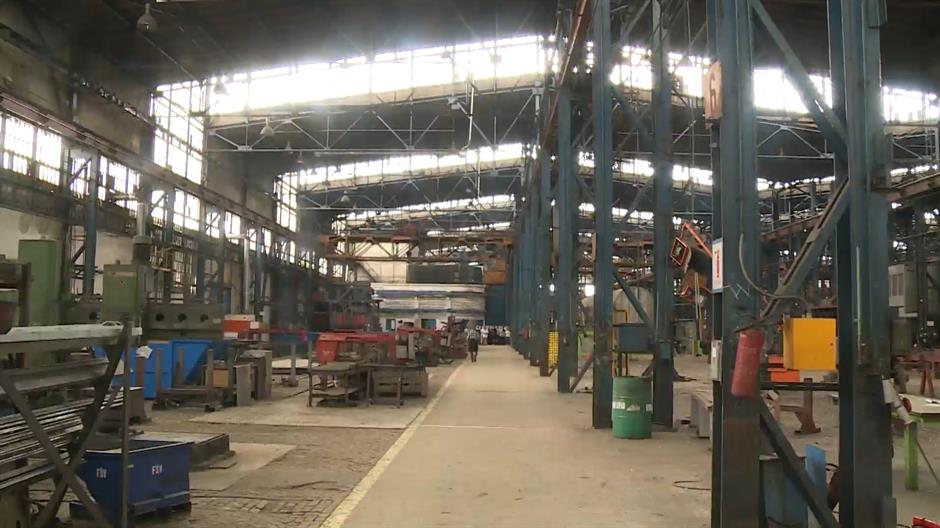Documentary, 28 min, 2022.
The semi-documentary film LAST WORKING DAN shows the last few days of Miloš Ristić, a worker at the GOŠA rail vehicle factory, before the factory was completely shut down.
The film evokes in an emotional way the problem of worker exploitation, the effects of deindustrialization and the condition produced by the colonial discourse and the position of the country of peripheral capitalism. By intertwining the fate of the worker with the fate of the factory, the film builds the story of the worker who was “sold together with the factory”.
FILM:
About Goša Factory
GOŠA was founded in 1923, and experienced expansive development from the 1950s to the late 80s, when as many as 11 factories operated as part of the Holding. It existed for 95 years and employed at times up to 12,000 workers. It was privatized in 2007 when it was sold for EUR 1.8 million, and since it was valued at EUR 9 million. EUR (earned EUR 35 million in the first year of privatization alone) The factory was bought by a private (tycoon) from Slovakia Vladimir Poor – ŽOS Trnava. This is followed by a series of purchases and sales of factories with companies that are most often established in countries that are considered tax havens (Cyprus, etc.) and all related to the primary owner (ŽOS Trnava). Immediately after privatization, the factory is constantly in debt, with the company-buyer (ŽOS Trnava) leasing the entire production line to GOŠI, thus using it as a sub-contractor with cheap labor. The explanation given by the company when asked why someone who is doing business successfully is in debt to the company: “When you are successful, you get into debt.” In 2014, it stopped paying salaries and contributions to workers, but GOŠA RSC was founded again – a new company without employees, to which all the operations of the company that is not in the blockade are now being transferred.
In the period from 2014-2017, the new company sends GOŠA workers to Slovakia for “professional training” (16 USD per day + accommodation, no insurance, no meals, work from 12-16 hours a day). Slovakia is otherwise known as an EU country where the same labor laws do not apply to foreign workers and the resident population. Taxes and contributions to the state have not been paid for 5 years, and workers have not been paid for 3 years. To the complaints of the workers, the state responds: “You are simply a private company and nobody can do anything about it.” The state has on several occasions helped solve the problems in GOŠA – but not in the way of obliging the private individual to respect the laws of the country (paying contributions and paying salaries), but by concluding interstate agreements that enabled new business for GOŠA and by providing favorable loans from development banks and investment funds . 2015 – one worker committed suicide in the factory due to the inability to live due to not receiving a salary for a long time. 2017 – declared bankruptcy, and the workers were fired, and the new company continues to use the entire factory (without workers) under the contract. Workers’ protests. Shutting down the factory.
Artist Danilo Prnjat and former Goša factory worker Miloš Ristić started hanging out and working on this film back in 2019. The material was jointly processed during 2021 and 2022 with the help of VAC – Visual Anthropology Center in Belgrade and in cooperation with production student Nataša Radić and law student Đorđe Paunović.
Support: VAC – Visual Antropologhy Center, Belgrade, 2021-2022.
